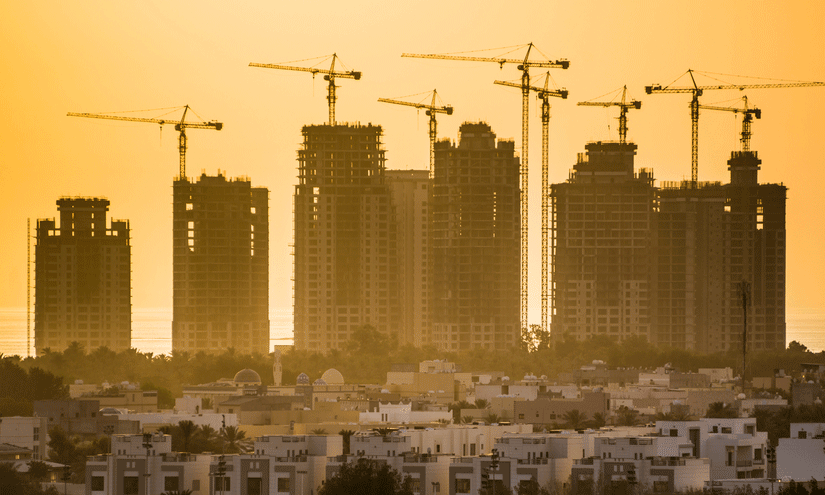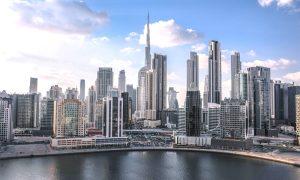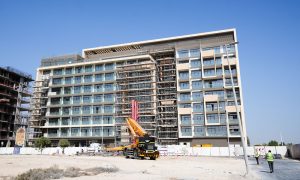Gulf infrastructure projects moving despite oil slump, says Atkins exec
Simon Moon, CEO of Atkins Middle East, says states like Saudi Arabia are committed to vital infrastructure and transport projects

Gulf infrastructure works are largely unaffected by the slump in oil prices, despite some fears that major construction projects would be hit, according to the regional boss of the consultancy Atkins.
A recent report by Alpen Capital said the dip in oil prices may cause a reduction in state spending within the GCC, which in turn would hamper the growth of the regional construction industry.
But Simon Moon, the chief executive for Atkins in the Middle East, said there wouldn’t be a “massive impact” on major government, infrastructure and transport projects due to them being essential to the growth and development of the GCC.
“We’ve not seen a massive impact as a designer, at the moment. A lot of the projects we’re involved in are government projects. At the end of the day, even the property projects are driven by government sentiments and aspirations. We’ve seen those continue to have very strong commitment,” he told MEConstructionNews.com.
“If you look at Qatar, a lot of their infrastructure going on there is around their vision for 2030. It’s the same in Saudi Arabia. I think those major transportation programs don’t seem to have been affected (by the fall in oil prices). Certainly, the current ones that are being delivered. If you look at the real need in Saudi Arabia for their economic diversification, the work that we’re doing with economic cities and so on, those don’t show any signs of having their budgets cut,” he added.
While analysts have said that there would not be any immediate impact, they did warn that there may be repercussions further down the line. The Alpen Capital report added that there were other challenges facing the GCC construction industry – in particular the cost of cement and increased competition for resources.
Moon agreed with these sentiments, pointing out that there would be some correction of some type within each government, in terms of their spending overall. However, he added that Atkins would continue to focus on projects that would have a ‘long term integrity’ around them, which would help them avoid any major downturns in the market.
“Can the Middle East continue with these low oil prices, without correcting their budget spend? I think that it’s unlikely. Saudi Arabia has clearly said that they have the reserves to continue, no matter what the oil prices are – and that’s probably true, but with the change of ruler, they’ve looked at what’s important and what the priorities are.
“Clearly security has increased in their priorities, social cohesion has increased in priority, and so has health, education and proper transportation networks. Those things are, I think, underlying issues and have a greater need. They will stay committed to them, rather than the short-term oil prices,” he concluded.
















